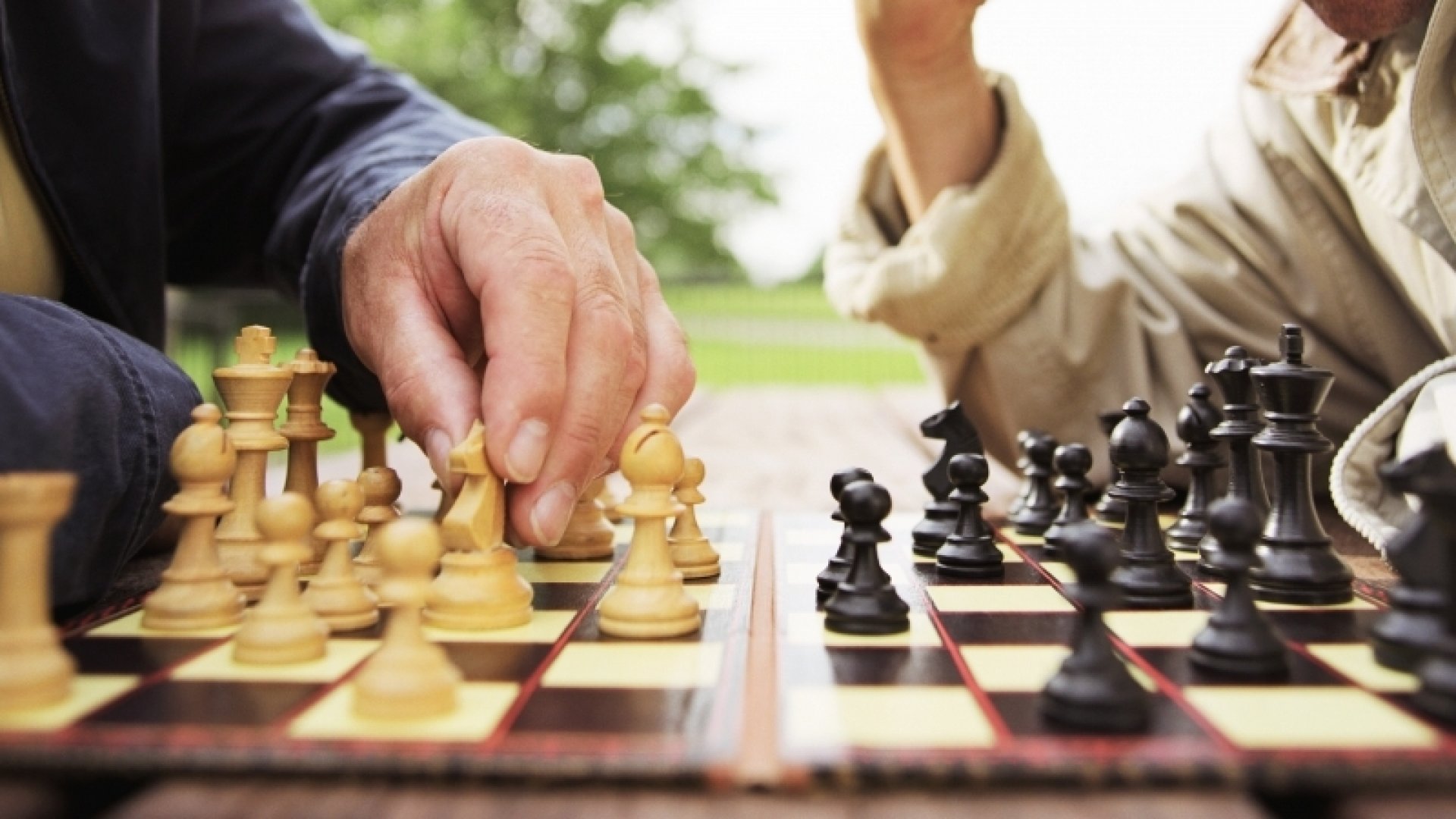
Chess is a game that has captivated people for centuries, combining strategy, skill, and logic into one exhilarating pastime. With its origins dating back to ancient India, chess has undergone countless transformations and has become one of the most popular board games in the world. But did you know that there are some astounding facts about chess that will amaze even seasoned players? From the sheer number of possible moves to the impact of chess on the brain, this article will take you on a journey through 19 fascinating tidbits about this ancient game. So, whether you’re a chess enthusiast or simply curious about the history and intricacies of the game, get ready to be amazed by these astounding facts about chess!
Key Takeaways:
- Chess is a game with a rich history and immense complexity, offering endless strategic possibilities and cognitive benefits for players of all ages and backgrounds.
- From its origins in ancient India to modern-day supercomputers, chess has captivated minds and inspired creativity across the globe, transcending boundaries and shaping the world of intellectual pursuits.
Chess is believed to have originated in Northern India around the 6th century.
Chess, a strategic board game, is said to have its roots in Northern India during the Gupta Empire. It then spread to the Islamic world and later to Europe, evolving into the game we know today.
The total number of possible unique chess positions is estimated to be around 10^40.
With an incredibly vast number of possible moves and positions, chess is considered a game of immense complexity and depth. It has more possible positions than the number of atoms in the observable universe!
Chess was once a popular pastime of royalty and the nobility.
In the past, chess was predominantly played by the aristocracy, with kings, queens, and nobles engaging in strategic battles on the chessboard to demonstrate their intellectual prowess.
The longest recorded chess game ever played lasted for 269 moves.
In 1989, Ivan Nikolic and Goran Arsovic battled it out in a marathon chess game that lasted for a staggering 269 moves. The game ended in a draw due to the fifty-move rule, which states that a draw can be claimed if no capture or pawn move has occurred in the last fifty moves.
The first official World Chess Championship was held in 1886.
Wilhelm Steinitz, an Austrian and later American chess master, won the inaugural World Chess Championship in 1886, defeating Johannes Zukertort in a fiercely contested match.
Viswanathan Anand, a chess grandmaster from India, held the world championship title for six years.
Anand, known as “The Tiger from Madras,” won the FIDE World Chess Championship in 2000 and successfully defended his title until He later regained the title in 2008 and held it until 2013.
Chess is considered a sport by the International Olympic Committee.
The International Olympic Committee (IOC) recognizes chess as a sport, with its own world governing body. However, it is not a part of the Olympic Games, but rather an independent event.
The Queen can move in any direction and any number of unobstructed squares.
One of the most powerful pieces on the chessboard, the Queen has the ability to move both vertically, horizontally, and diagonally, allowing for dynamic and strategic gameplay.
The game of chess is played on a square board consisting of 64 squares.
The chessboard is made up of eight rows of eight squares each, alternating between light and dark colors. This layout has remained unchanged for centuries.
The first computer to defeat a reigning world chess champion was Deep Blue.
In 1997, IBM’s Deep Blue supercomputer famously defeated Garry Kasparov, the reigning world chess champion at the time. It was a groundbreaking moment in the history of artificial intelligence and chess.
Chess can improve cognitive skills, memory, and problem-solving abilities.
Engaging in regular chess practice has been shown to have numerous cognitive benefits. It can enhance critical thinking, concentration, pattern recognition, and strategic planning skills.
The word “checkmate” comes from the Persian phrase “shah mat,” meaning “the king is helpless.”
When a player’s king is in a position to be captured, they are in check. If there is no legal move to remove the king from check, it results in checkmate and the game is over.
The youngest undisputed chess world champion is Garry Kasparov.
Kasparov became the youngest undisputed world chess champion in 1985 at the age of He held the title until 2000 and is widely regarded as one of the greatest chess players in history.
The opening move is crucial in chess and can set the tone for the entire game.
There are numerous opening strategies and moves in chess, each with its own unique characteristics and strategic objectives. The choice of opening can significantly influence the flow and outcome of the game.
The game of chess is played by millions of people worldwide, transcending age, gender, and cultural boundaries.
Chess is a truly universal game that is played and enjoyed by people from all walks of life. It promotes inclusivity, intellectual growth, and social interaction.
The player with the white pieces makes the first move in a game of chess.
Traditionally, the player controlling the white pieces has the advantage of making the first move, setting the initial tempo and shaping the early stages of the game.
Chess tournaments are held at various levels, from local competitions to international championships.
Chess enthusiasts have the opportunity to participate in tournaments of different scales. These events provide a platform to showcase skills, learn from opponents, and foster a spirit of healthy competition.
The game of chess has inspired countless works of literature, art, and film.
Chess has long been a subject of inspiration for creatives across various mediums. From famous novels like “The Luzhin Defense” to iconic paintings like “The Chess Players,” its influence can be seen far and wide.
Chess puzzles and studies offer a challenging and enjoyable way to improve chess skills.
Chess puzzles and studies are specifically designed to test and improve tactical and strategic thinking. They provide an engaging way to refine chess abilities and discover new ideas on the chessboard.
Conclusion
Chess is truly a fascinating game that has captivated people for centuries. The 19 astounding facts about chess listed above provide a glimpse into the rich history, complex strategies, and extraordinary achievements associated with this timeless game. Whether you are a seasoned chess player or just starting out, these facts serve as a reminder of the depth and beauty of the game.
FAQs
Q: How old is the game of chess?
A: The game of chess is believed to have originated in northern India around the 6th century.
Q: How many different possible moves are there in chess?
A: The number of possible moves in chess is estimated to be around 10^40, making it an incredibly complex game.
Q: How long does an average game of chess last?
A: The duration of a chess game can vary greatly, but on average, it can take anywhere from 20 minutes to several hours.
Q: Who is considered the greatest chess player of all time?
A: There is no definitive answer to this question, as it is a matter of personal opinion. However, grandmasters such as Garry Kasparov, Bobby Fischer, and Anatoly Karpov are widely regarded as some of the greatest players in history.
Q: Can anyone learn to play chess?
A: Yes, anyone can learn to play chess. It may take time and practice to become proficient, but with dedication and perseverance, anyone can become a skilled chess player.
Q: Are there any health benefits associated with playing chess?
A: Yes, playing chess has been linked to numerous health benefits, including improved memory, problem-solving skills, and cognitive abilities.
Was this page helpful?
Our commitment to delivering trustworthy and engaging content is at the heart of what we do. Each fact on our site is contributed by real users like you, bringing a wealth of diverse insights and information. To ensure the highest standards of accuracy and reliability, our dedicated editors meticulously review each submission. This process guarantees that the facts we share are not only fascinating but also credible. Trust in our commitment to quality and authenticity as you explore and learn with us.


